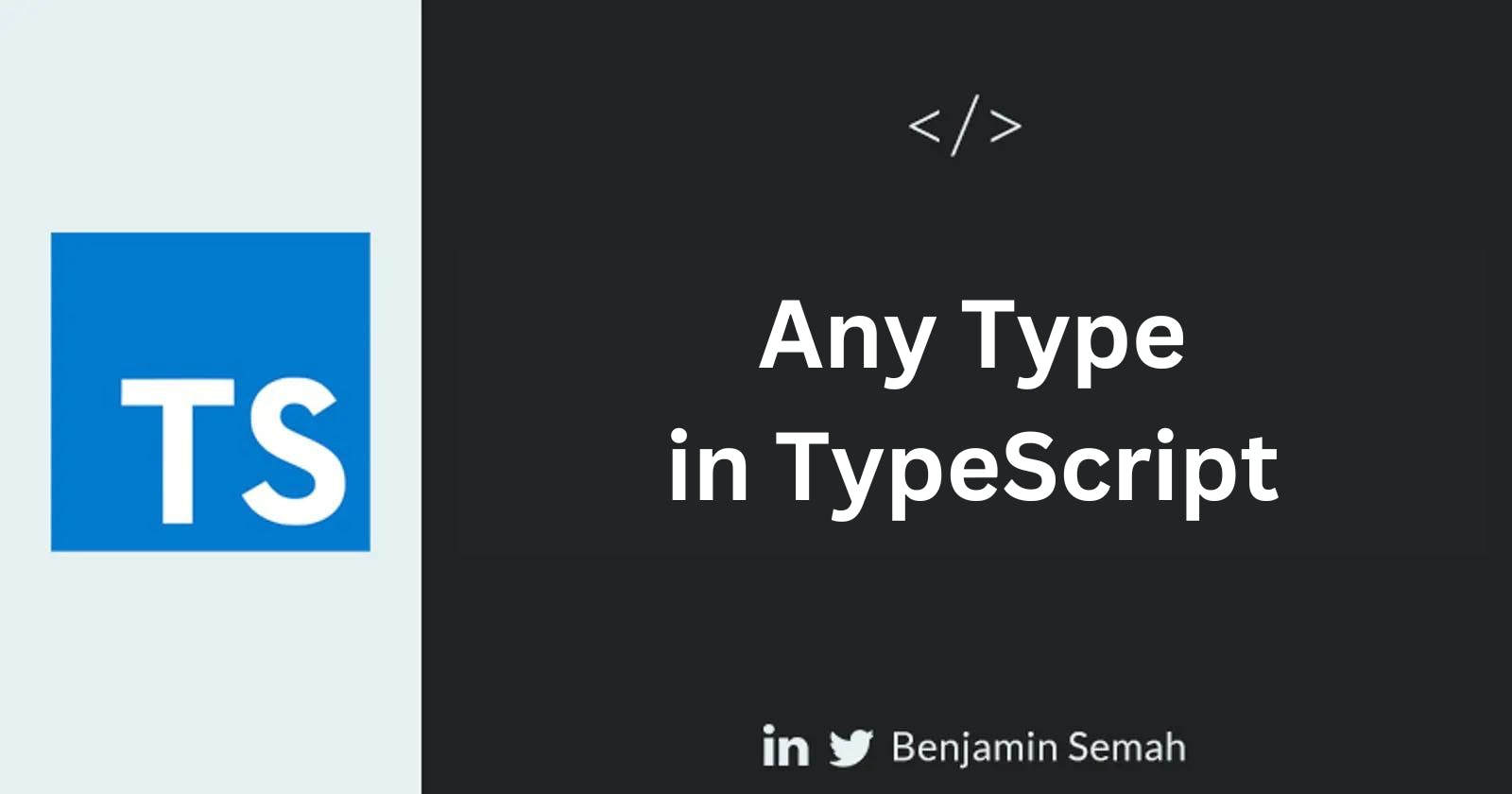Table of contents
Introduction
In this lesson, we are going to learn about the any type in TypeScript.
The any type is TypeScript allows us to assign a value of any type to a variable. This means, with the any type, a type of a variable's value can be changed.
When to use the any type
There are some cases where strict type checking may not be an ideal option. When you want to store a value in a variable but do not know the type at the time of writing the program. For example, the variable with the unknown type may come from user input or from a third-party library or API.
The syntax for assigning the any type in TypeScript is as follows.
// TypeScript
let newVariable: any = "Some value"
newVariable = 23
Ordinarily, we can't change the type of a variable in TypeScript. However, with the assignment of any type, it is possible to update the value of newVariable from someValue which is a string to 23 which is a number.
With the any type, newVariable is essentially working like a variable declared in vanilla JavaScript.
Conclusion
Using the any type in TypeScript indicates to the compiler to skip type checking on the particular variable. It is appropriate for situations when you aren't sure of what type to expect, for example, user input or data from a third-party library or API.
Thanks for reading.
